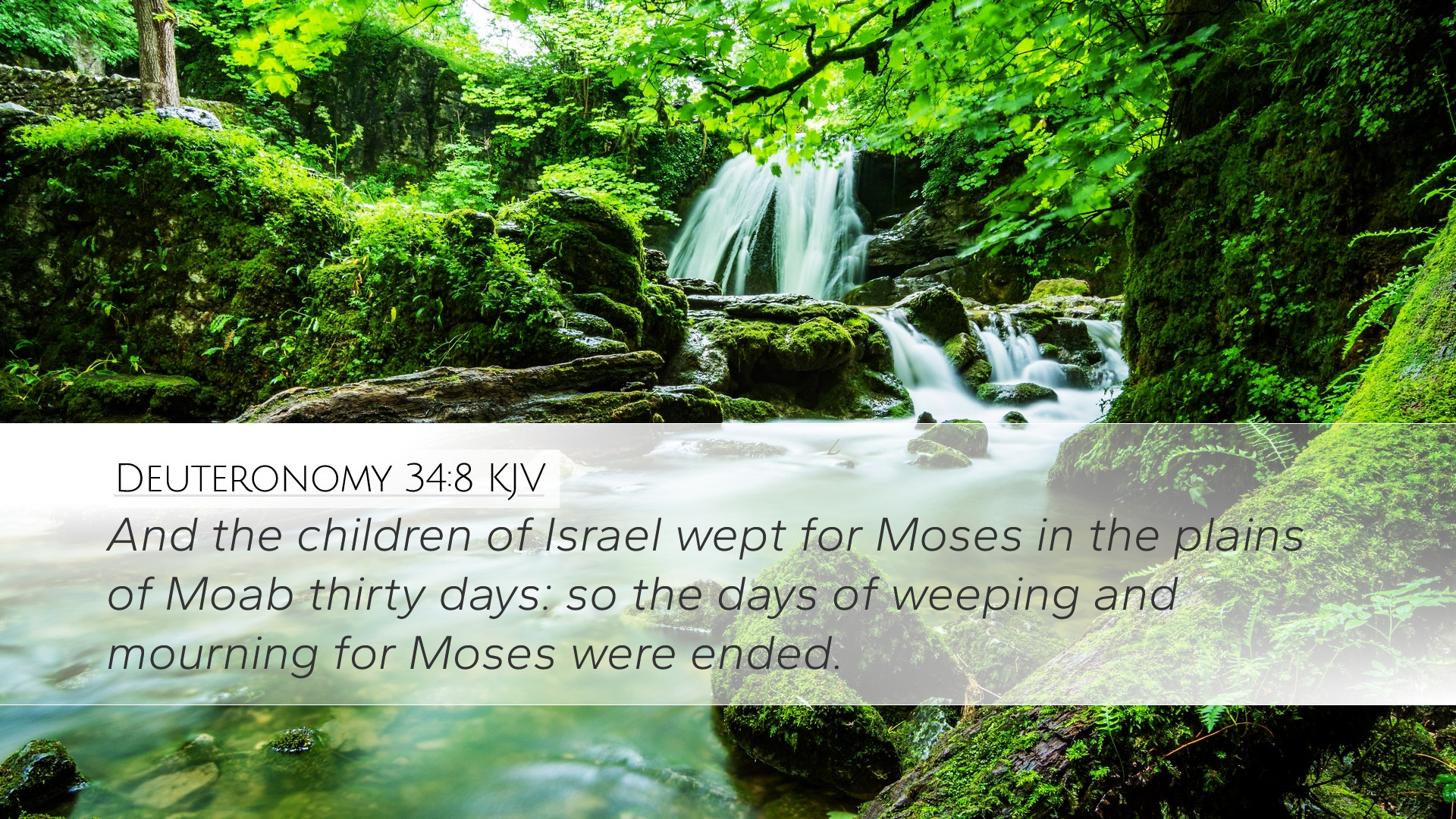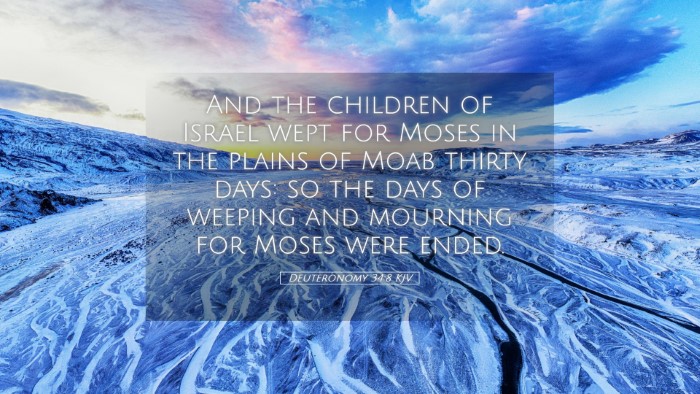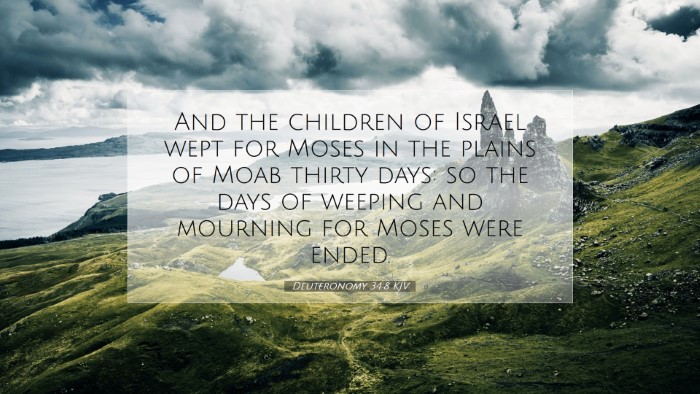Commentary on Deuteronomy 34:8
Verse: “And the children of Israel wept for Moses in the plains of Moab thirty days: so the days of weeping and mourning for Moses were ended.” (Deuteronomy 34:8, KJV)
Introduction
This verse marks the end of an era for the children of Israel, as it describes the mourning for their leader, Moses. As a passage that concludes the Torah, it not only reflects the deep loss felt by the Israelites but also signifies the transition to a new phase in their journey. By analyzing this text through various public domain commentaries, we can draw profound insights into its themes of leadership, loss, mourning, and remembrance.
The Context of Mourning
The mourning for Moses, lasting thirty days, is a significant period that highlights the Israelites' respect and love for their prophet. Matthew Henry emphasizes that this mourning is a reflection of the Israelites' recognition of Moses’ unique role as their leader and prophet. Henry notes that the length of their mourning period illustrates the depth of their sorrow, indicating that such recognition of loss was customary in their culture.
Albert Barnes elaborates on the communal aspect of this mourning. He points out that the whole nation participated in this event, signifying the impact Moses had on each individual life. The thirty days served as both a public demonstration of grief and a private reflection on their collective loss. This collective mourning is imperative as it strengthens community bonds and acknowledges the significance of shared leadership.
Moses as a Leader
Adam Clarke focuses on the implications of Moses’ leadership and the absence left by his death. He notes that Moses was not only a political leader but also a spiritual guide who interceded for the Israelites before God. Clarke posits that this mourning reflects the Israelites' understanding of a vacuum created by his departure.
-
Spiritual Leadership:
The mourning is profound in that it signifies a loss not only of a leader but of spiritual guidance. Moses represented the direct connection between the people and God, and his death illustrates the challenge of transitioning to new leadership.
-
Political Influence:
In addition to his spiritual role, Moses was the architect of the nation of Israel. Clarke explains that his leadership was crucial during their formative years. His laws and instructions were foundational, and thus the mourning reflects the inherent anxiety present when a principled leader is lost.
The Significance of Mourning
The act of mourning is captured beautifully in the biblical text. Matthew Henry indicates that mourning serves as a crucial process for dealing with grief. It allows individuals and communities to acknowledge their loss and begin the path toward healing. In this context, the children of Israel's mourning may have provided them with a sense of closure, allowing them to reminisce about Moses' leadership while preparing to face new realities without him.
Albert Barnes adds that this mourning was not just for Moses but was emblematic of the transition the nation was experiencing. It was essential for the nation to honor their leader and reflect upon the lessons learned during his leadership. The period of mourning can be seen as a time of reflection on their identity as a nation and their relationship with God.
Implications for Future Generations
This verse holds significant implications for future generations of Israelites. Adam Clarke highlights that the mourning for Moses was a way to instill the values he represented within the hearts of the people. It was a moment that could reinforce their covenantal relationship with God and their understanding of obedience, faith, and leadership.
Through this public expression of grief, the Israelites would remember not only Moses but also the teachings he imparted, which would guide them as they entered the Promised Land. Clarke asserts that understanding this mourning helps future generations appreciate the gravity of leadership and the responsibility that comes with it.
Conclusion
Deuteronomy 34:8 encapsulates the profound sense of loss experienced by the Israelites upon the death of Moses. Through the insights of Matthew Henry, Albert Barnes, and Adam Clarke, we learn that this mourning not only signifies the end of Moses' leadership but also serves as a crucial moment for communal reflection and identity establishment. Pastors, students, theologians, and Bible scholars can draw from this rich commentary to understand the multifaceted nature of loss and leadership, and how these dynamics play a pivotal role in shaping community and faith.


